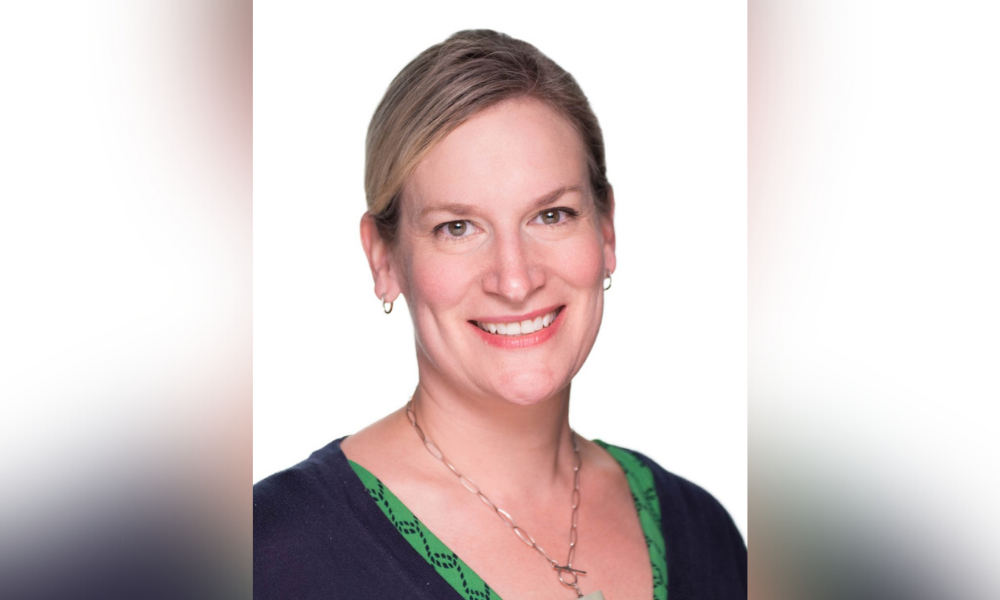Director of solutions, Anne Hoare, shares her take on the current market conditions and the options that investors and their FAs may be weighing

The craziness in the world right now means that some investors may make decisions in panic.
But their advisors should encourage them to hold their nerve and continue to focus on their long-term goals, rather than jump into asset classes that they may regret later.
Anne Hoare (pictured) is director of solutions at SEI Canada, and she has been sharing her insights with Wealth Professional.
On the current multiple challenges of inflation, Ukraine, the pandemic, and rising rates, she acknowledges how this can be unsettling for many investors.
“While there are many big themes and economic undercurrents impacting us all at once, we believe it’s important that investors ground themselves in their personal goals and focus on the factors that they and their financial advisors are able to control, like their own investing behaviours and client communications,” she said. “None of us individually can control wars, inflation rates or the capital markets but we can control how and how much we invest and how we communicate throughout the advice relationship.”
Invest in what you understand
One of the key messages that advisors need to communicate is that panic decisions are risky, especially when presented with emerging asset classes that may not be properly understood.
Hoare began her career at a boutique venture capital firm that worked mostly with emerging technology firms.
That shaped her philosophy that it’s best only to invest in securities and business models that you understand; or be in the dark about whether they are going to help or hurt your financial goals.
She believes that if clients are insistent about investing in burgeoning asset classes such as cryptos and NFTs, it’s important for clients to balance their expectations with reality.
“Some clients will want to have some exposure to these newly evolving asset classes, and we believe that an advisor’s role in that instance is to educate and encourage the “right-sizing” of allocations to the more speculative types of investments. It’s like exercising – focus most of your energy on the core – it’s the foundation for everything else.”
Tech or climate?
For those clients that are taking the long-term view, technology will continue to evolve while climate change solutions will become increasingly attractive for investors.
But, if the SEI Canada executive had to back either tech or climate change industries for investment, which would she pick?
“We believe fundamentally in the importance of diversification. For investors, one helpful way to consider sector allocation is to aggregate the perspectives from the experts and advisors they work with and use their input to make a final determination,” she said. “If they have a strong, goals-based approach, their short- and long- term allocations should effectively reflect that plan.”
ETFs or mutual funds?
While we couldn’t get Hoare to make a binary choice on tech or climate change investments, perhaps she could do so on fund options: mutual or ETF?
“We are staunch believers in the value of active investment management – at the right price. The fundamental truth is that both mutual funds and ETFs can have a place in a portfolio depending on the client’s goals and preferences,” she said. “Advice that centers around the client and their goals will be most effective in the long run. If clients understand the plan and feel like a “co-planner” with the advisor, then their level of engagement and commitment to the plan will be much higher – irrespective of the investment vehicles in their portfolio.”
Exciting times?
Finally, we asked Anne Hoare what gets her excited to go to work in the morning. She cited working with SEI Canada’s strategic partners, both long-term and emerging.
“We’ve just launched a new partnership with Co-Operators Financial Investment Services (CFIS),” she said. “It’s exciting to bring our cost-efficient asset allocation solutions to a brand-new audience and to help CFIS advisors further humanize the advice process by incorporating behavioural finance into their client conversations. At the end of the day I get jazzed about playing a role in helping everyday Canadians reach their financial goals.”



